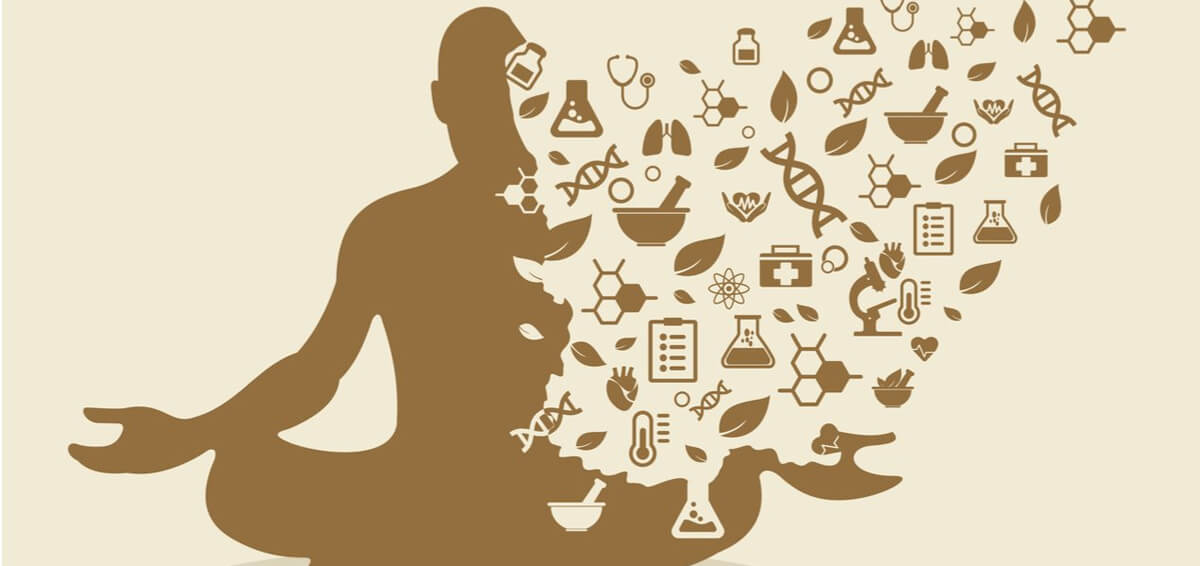
In today's fast-paced world, where stress, imbalances, and chronic health issues are prevalent, there is a growing interest in holistic approaches to health and well-being.
In today's fast-paced world, where stress, imbalances, and chronic health issues are prevalent, there is a growing interest in holistic approaches to health and well-being. One such ancient holistic system that has gained popularity is Ayurveda. Derived from the Sanskrit words "Ayur" (meaning life) and "Veda" (meaning knowledge), Ayurveda offers a comprehensive understanding of the human body, mind, and spirit.
Ayurveda, with its roots in ancient India, provides valuable insights into achieving optimal health through natural and holistic means. It emphasises the harmonious integration of the body, mind, and spirit to attain a state of overall well-being. By recognizing the unique constitution and individual needs of each person, Ayurveda offers personalised guidance on lifestyle choices, diet, exercise, and therapeutic treatments.
In this beginner's guide to Ayurveda, we will delve into the foundational principles and key concepts of this ancient healing system. Whether you are new to Ayurveda or curious about exploring alternative approaches to health, this guide will provide you with a solid foundation to begin your holistic journey.
At its core, Ayurveda is a holistic system of medicine that takes into account the interconnectedness of the body, mind, and spirit. It recognizes that when these aspects are in balance, good health is achieved, and when imbalances occur, disease and discomfort manifest. The primary goal of Ayurveda is to restore and maintain this balance through personalised approaches.
One of the fundamental concepts in Ayurveda is the concept of doshas. Doshas are the three biological energies—Vata, Pitta, and Kapha—that govern all physical and mental processes in the body. Each person has a unique combination of these doshas, known as their Prakriti or constitution. Understanding your Prakriti helps tailor lifestyle choices and treatments to promote optimal well-being.
Vata represents the elements of air and space, governing movement, creativity, and vitality. Pitta embodies the elements of fire and water, governing digestion, metabolism, and intellect. Kapha embodies the elements of earth and water, governing stability, structure, and emotional calmness. When the doshas are in balance, health is maintained, but when they are imbalanced, various symptoms and health issues may arise.
To identify your Prakriti, it's essential to understand the characteristics and tendencies associated with each dosha. Vata individuals tend to be creative, energetic, and prone to imbalances such as anxiety and digestive issues. Pitta individuals are often ambitious, focused, and prone to imbalances like heartburn and irritability. Kapha individuals are typically calm, nurturing, and prone to imbalances such as weight gain and sluggish digestion.
To determine your Prakriti, you can seek guidance from an Ayurvedic practitioner or take online self-assessment quizzes. These assessments consider physical attributes, personality traits, and tendencies to provide insight into your dominant doshas.
Ayurveda views the universe and the human body as a composition of five elements—ether, air, fire, water, and earth. Each dosha is associated with specific elements and qualities. Understanding the elements helps in making dietary and lifestyle choices that promote balance.
Furthermore, Ayurveda recognizes six tastes—sweet, sour, salty, pungent, bitter, and astringent—and their impact on the doshas. Each taste has different effects on the body and can either aggravate or pacify the doshas. For example, sweet and sour tastes are associated with earth and water elements, which can increase Kapha dosha when consumed in excess. On the other hand, pungent and bitter tastes are associated with fire and air elements, which can help balance Kapha dosha.
Ayurveda places great emphasis on lifestyle choices as a means to promote balance and well-being. Daily routines (Dinacharya) and seasonal routines (Ritucharya) are considered crucial for maintaining health. These routines include practices such as waking up early, tongue scraping, oil pulling, meditation, regular exercise, and eating meals at consistent times.
Ayurveda also emphasises the importance of proper nutrition. It encourages a diet that is fresh, wholesome, and suited to one's Prakriti. The emphasis is placed on consuming a variety of fruits, vegetables, whole grains, legumes, and healthy fats while minimising processed foods, artificial additives, and excessive stimulants.
In addition to lifestyle recommendations, Ayurveda offers a range of therapeutic approaches to promote holistic healing. These approaches include herbal medicine, Ayurvedic massages and therapies, yoga, meditation, and detoxification treatments known as Panchakarma. These therapies aim to balance the doshas, eliminate toxins, rejuvenate the body, and promote overall well-being.
Incorporating Ayurvedic principles into daily life does not have to be overwhelming. Here are some practical steps you can take:
Ayurveda offers a profound understanding of holistic health, recognizing the interconnectedness of the body, mind, and spirit. By embracing the concepts of doshas, Prakriti, the five elements, and the six tastes, individuals can make informed choices to promote balance and well-being. Incorporating Ayurvedic principles into daily life can lead to improved health, vitality, and overall quality of life. Remember that Ayurveda is a personalised system, and seeking guidance from a qualified practitioner can enhance your Ayurvedic journey. Embrace the wisdom of Ayurveda, and embark on a path to holistic health and well-being.
By understanding the basics of Ayurveda and applying its principles in our lives, we can experience the profound benefits of this ancient healing system. So, begin your Ayurvedic journey today and unlock the transformative power of holistic health.
To embark on your holistic healing journey, take the first step and call us at 8925749111 to schedule a consultation with Dr. Raniya Sulthana, and experience the transformative power of authentic Ayurveda in your life.
First Floor, Somanathapuram, Door No 4, 11B, Paper Mills Road, near Square Brothers Xerox, Kolathur, Tamil Nadu 600099.
First Floor, 241, Poonamallee High Rd, Maduravoyal, Chennai, Tamil Nadu 600095.
No. 63, HIG1, Ground Floor, Mogappair West Main Road, Nolambur, Chennai, Tamil Nadu 600037.

Copyrights All Rights Reserved Dr. Raniya Sulthana Ayurveda Multispeciality Clinic | Website Designed & Developed By GlintCreatives.com